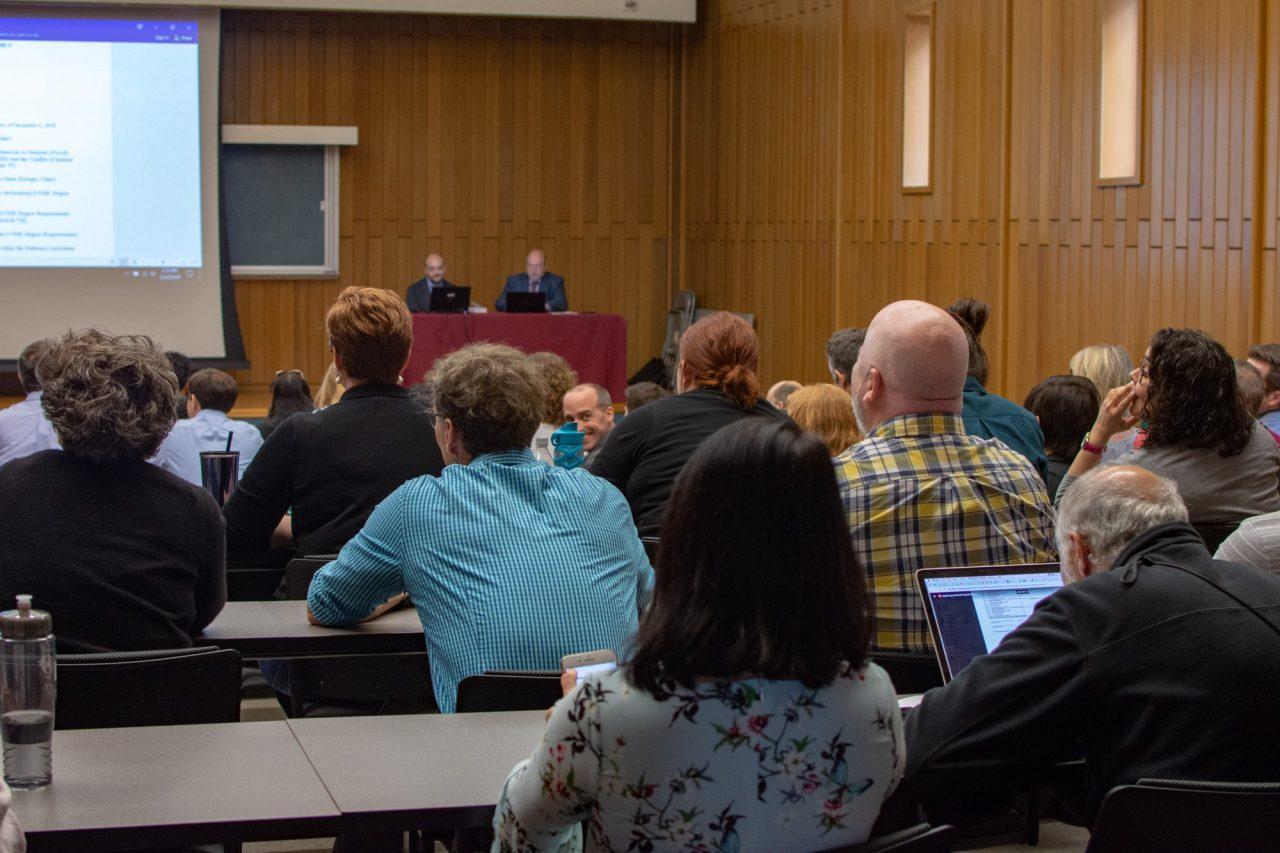Photo by Genevieve Humphreys
Last Friday, March 22, the University Curriculum Council (UCC) approved four proposals to alter the requirements of the Pathways Curriculum. The alterations include requiring students to take classes in at least 10 different disciplines and having students declare their interdisciplinary cluster like they do their major.
Following the implementation of the Pathways Curriculum in 2015, the UCC has tracked student’s progress to ensure the curriculum is effective and completable. Last semester, the UCC voted to allow students to acquire a global awareness credit by studying abroad.
At the beginning of the academic year, members of the UCC started to gather data from degree audits and students’ and faculty advisors’ anecdotes to understand which requirements students were having the most trouble completing. Before presenting their ideas before the entire faculty, the UCC spent months discussing, debating and formulating some motions. All their proposals were passed in the faculty meeting.
“The most significant of those four, I think, is currently students take five approaches and three courses in their cluster. There is currently a rule that says of those eight courses, seven must come from different subject codes or disciplines,” said Glenn Kroeger, associate professor of geosciences and chair of the UCC. “The change we are recommending is that instead of requiring seven different disciplines out of those eight courses, we would require that in total, a student’s transcript when they graduate needs to have at least 10 different disciplines.”
According to the UCC, another element of the Pathways Curriculum that has been creating hurdles for students are the interdisciplinary clusters. The UCC has, however, devised a plan to hopefully combat problems with Pathways.
“One of them requires students to declare an interdisciplinary cluster at the same time they declare a major,” said Duane Coltharp, associate vice president for Academic Affairs focused on curriculum and faculty development. “And the idea there is that we want to encourage students to be intentional about the way they approach the cluster requirement. What we are seeing amongst some students who are approaching graduation this year is they’ve been working on most of their pathways requirements but the clusters are kind of deferred, and we want to prevent that kind of scrambling.”
The UCC also changed the written communication (WC) requirement to no longer require an upper-division course.
“The idea behind that originally was that we assumed that every major would develop upper-division courses in which students learned to write in their chosen discipline,” Kroeger said. “But there are some major programs that simply cannot deliver enough WC courses to handle all their students. And now the problem that a student faces it that if you can’t do upper division WC course in your major, you’re forced to find an upper division course somewhere else. But does that course have prerequisites? Are you ready for it? Should you take an upper division course in another department where you really don’t have a background in? And is that even fair to the other people in the course and the instructors? So, we’re removing that upper division requirement.”
Finally, the UCC removed the “Engaged Citizenship” label from the Pathways curriculum, but not the required courses.
“And the last motion is pretty minor,” Coltharp said. “But it just happens that global awareness, foreign language and understanding diversity, those three core capacities are bundled under the heading of Engaged Citizenship. We find that very few people are actually using that label. This motion just gets rid of the label.”
According to Coltharp and Kroeger, future changes are going to be made to Pathways because the UCC is constantly trying to improve it.
“[The faculty] really do have the best intentions in mind,” said Benjamin Gonzalez, the Student Representative to the UCC. (Gonzalez is an opinion columnist for the Trinitonian.) “I’ve been really impressed about how caring the faculty are. I think it’s good for people to know that they really are trying to help everyone out, and we look at data all the time of the people about to graduate and how well they’re doing in pathways and compare the following class to see if what we’re doing is helping. Overall, they’re making some really good progress.”













